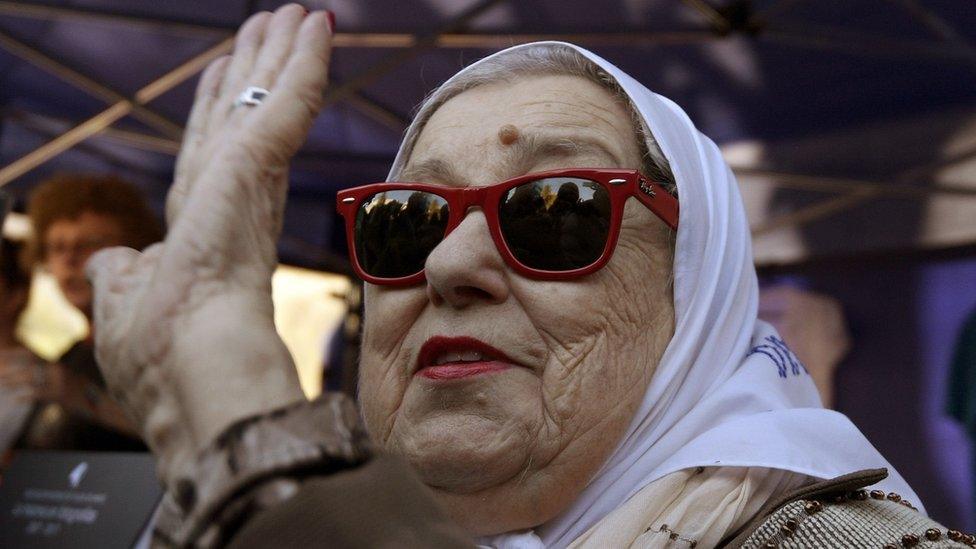Hebe de Bonafini: Co-founder of Argentina's Plaza de Mayo mothers group dies at 93
- Published
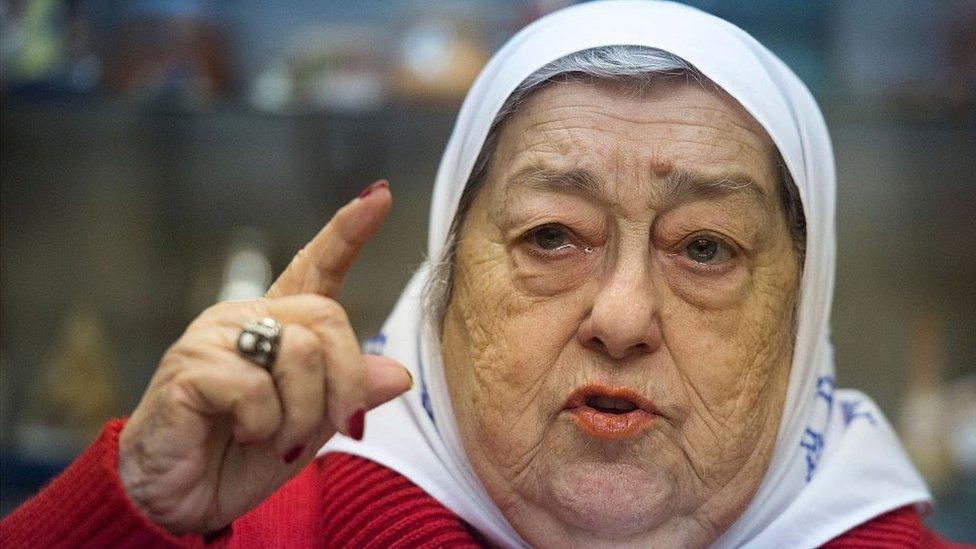
Hebe de Bonafini in 2016
A human rights activist who galvanised the mothers of missing people during Argentina's Dirty War has died aged 93.
Hebe de Bonafini founded the Mothers of Plaza de Mayo with other women in 1977, to demand the return of their children who had been kidnapped by security forces.
She continued to campaign after the end of the dictatorship, becoming an outspoken and controversial figure.
Her two sons were never found, and are presumed dead.
Argentina's president Alberto Fernández declared three days of national mourning in honour of a "tireless fighter".
Ms Bonafini died on Sunday morning, her daughter Alejandra said.
"These are very difficult moments of deep sadness, and we understand the love people have for Hebe. But, right now, we need to cry in private," she wrote in a statement.
Ms Bonafini started the Mothers of Plaza de Mayo group with 13 other women in May 1977, after her sons were taken by soldiers earlier that year.
As she searched for them, she met other women in the same situation.
An estimated 30,000 people were killed or forcibly disappeared in Argentina in the 1970s and 80s.
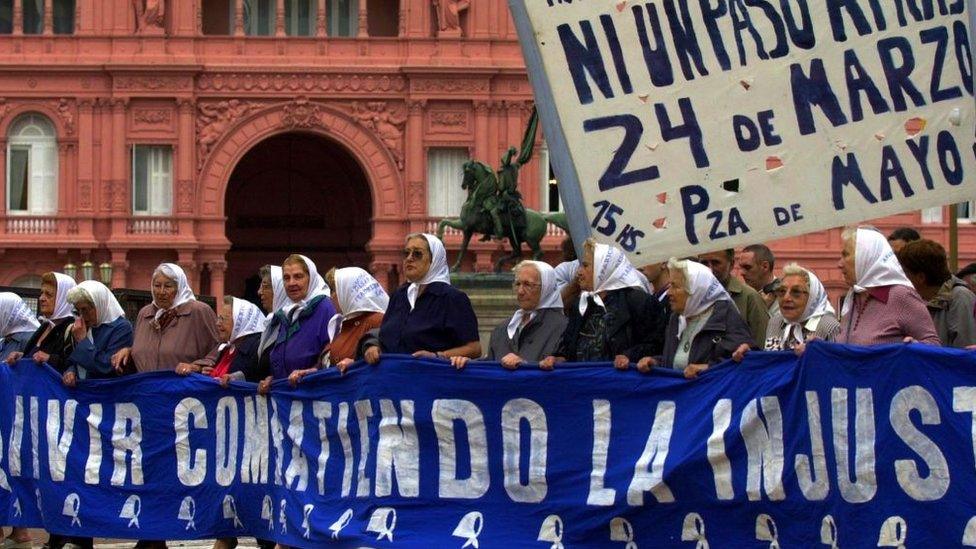
Ms Bonafini and the Mothers of the Plaza de Mayo marching in 2001
The group of women began to hold weekly protests in Buenos Aires' Plaza de Mayo, in front of the president's residence.
The government broke up the early demonstrations, and kidnapped and killed the group's first leader, Azucena Villaflor.
But the protests continued, recruiting more and more members.
The women began to wear children's cloth nappies on their heads, to symbolise the missing children, and white scarves later became the symbol of the movement.
Their campaign gained international fame and put pressure on the Argentinian government.
"They arrested us, they beat us, we came with wigs so they couldn't identify us," Ms Bonafini told Reuters news agency in 2007.
The group continued to campaign after the end of the dictatorship in 1983, and Ms Bonafini became the leader of a more radical faction calling for systemic political change.
She became an outspoken and sometimes controversial figure, and in 2001 said she felt "happiness" about the 9/11 attacks, because of actions of the West such as Nato bombings.
She also said Pope John Paul II would go to hell, as he had "committed many sins".
In 2017 she was prosecuted for alleged misappropriation of funds meant for building affordable housing. She said this was a political act by the then-president, who she considered an enemy.
Related topics
- Published1 May 2017
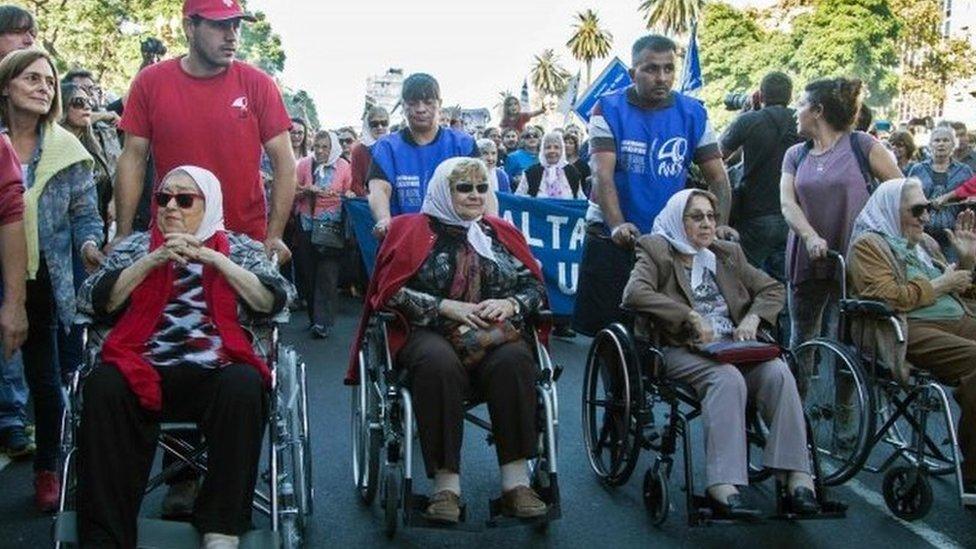
- Published12 August 2016
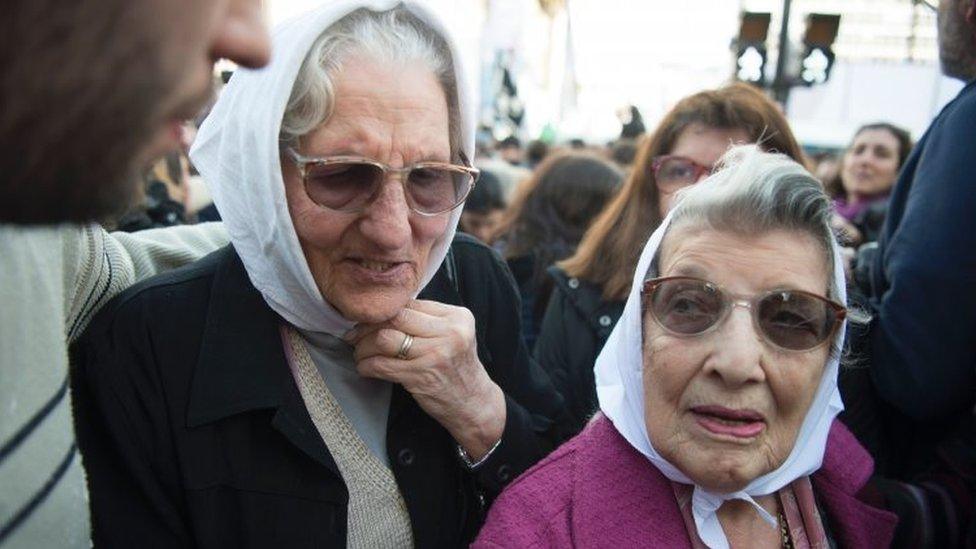
- Published16 May 2017
